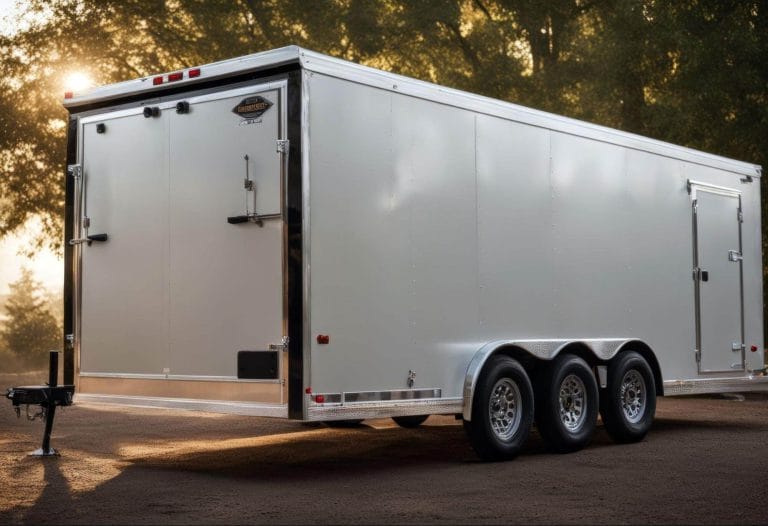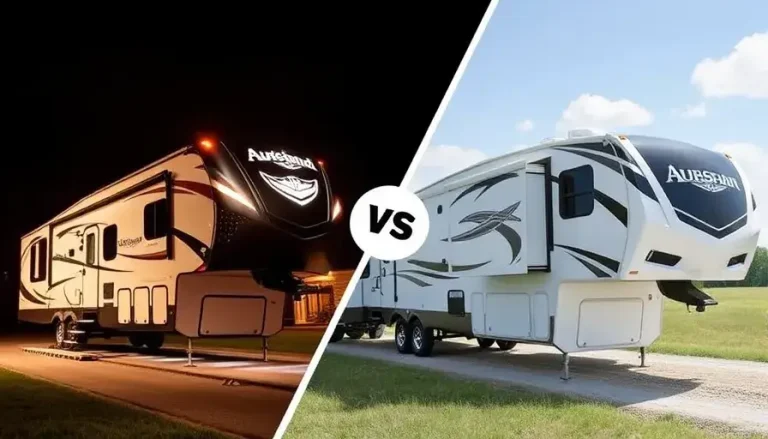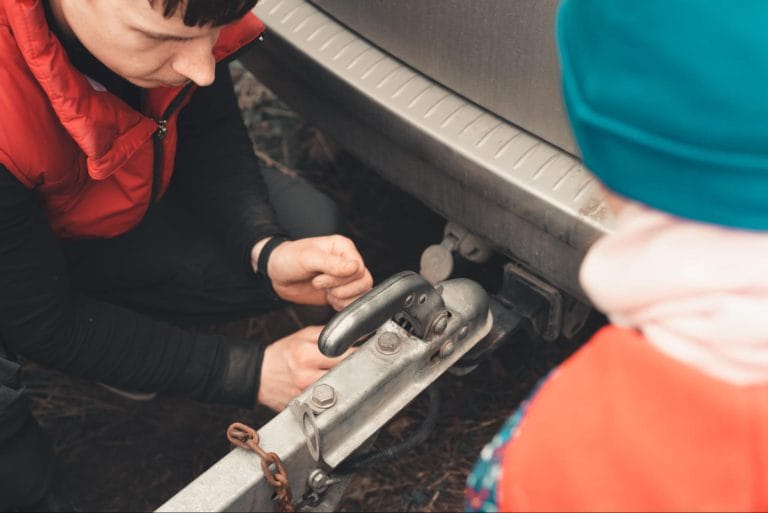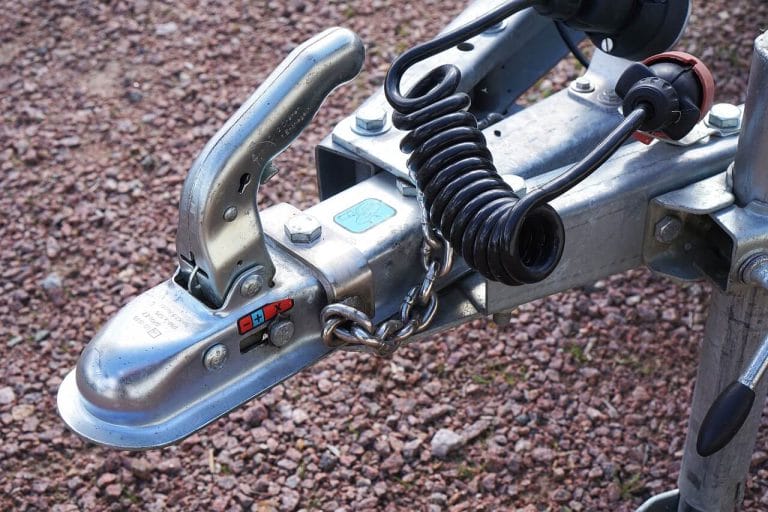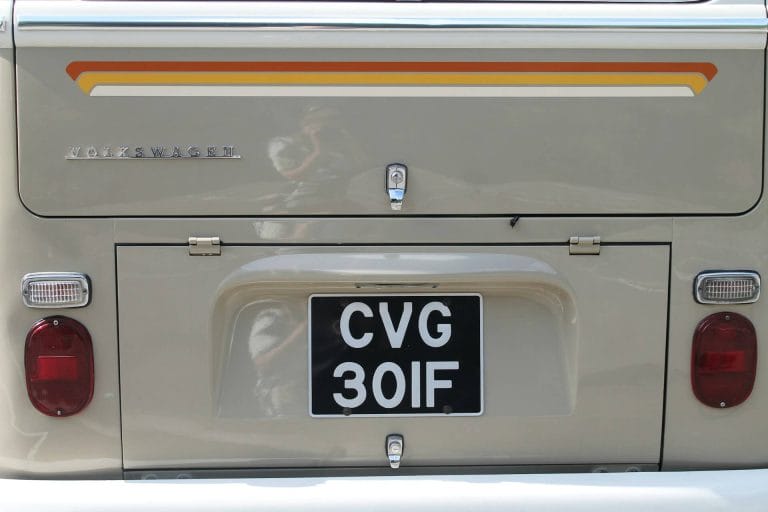While it’s easy to assume that any liability for the trailer follows that of the vehicle it’s hitched to, you should still consider it with caution. Even a rule of thumb has its exceptions, and we’ll examine whether your trailer needs insurance and why having insurance can be beneficial.
What is Trailer Insurance?
Trailer insurance works like regular car insurance, covering you in the case of damage to your trailer, whether caused by an accident or nature. Of course, to avoid damage, there are three safety tips you should always follow when towing. However, if your trailer is damaged, the policy may help cover the replacement cost for a new rig if the damaged one is beyond repair.
Trailer policies will typically cover any vehicle that relies on being towed by another, as it cannot power itself. Trailer insurance is essential if you regularly use yours for commercial purposes, such as hauling cargo or livestock.
It’s important to note that this insurance is separate from your car’s insurance. However, in some cases, your car insurance will include coverage for your trailer. Checking your policy with your broker is the first step to knowing if you already have trailer insurance or need it separately.
Do All Trailers Need Insurance
Regardless of your trailer, you’ll need to replace a tire or repair some damage one day. Having an insurance policy, which many may consider a luxury, can be an essential umbrella should you need coverage when damage does occur.
While all trailer types can be insured, not all need a separate insurance policy. In most states, your car insurance will include a towed body with no engine as part of your regular policy. This aspect is perfect if you rarely use a trailer and don’t rely on it for commercial purposes.
However, if you use a rig for commercial reasons, it’s vital that you first check with your broker on their policy regarding trailers and take out a policy for yours if needed. These policies can cover the replacement cost should your trailer be damaged and can’t be repaired. For smaller businesses, this can be an essential lifeline.
Do Utility Trailers Need Insurance?
Typically, there’s no law requiring you to get utility trailer insurance. More often than not, the liability coverage on your vehicle will also cover your rig, yet the answer to our question isn’t as simple as that. Liability insurance won’t cover the damage to items you’re hauling, but only the trailer itself.
Additionally, many types of damages will typically exclude your trailer from protection, leaving you liable alone. Most auto insurance policies won’t cover severe weather damage or theft of your trailer, even if your transportation is smooth when hauling cargo.
Do Travel Trailers Need Insurance?
A camper, caravan, or travel trailer that lacks an engine to power itself falls under the regulation of a trailer. In most states, you aren’t legally required to have protection or policy for these vehicles. However, we advise against this as they’re considered wellings and will often sit on-site instead of following behind your car.
In these situations, even if you have a great truck for towing, the caravan is left vulnerable to theft and vandalism of itself, and its inner equipment and cargo. Comprehensive coverage can help protect your travel trailer against such acts and severe weather, such as hailstorms.
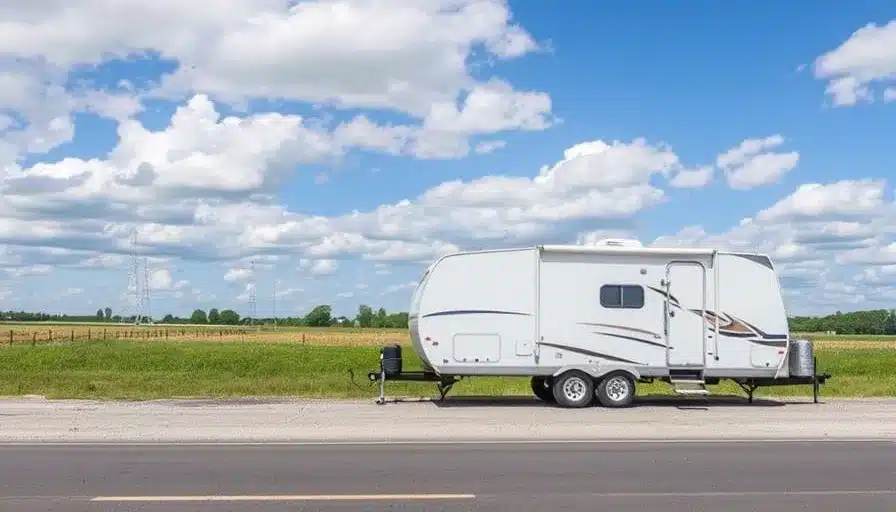
Why Get Trailer Insurance?
While trailer insurance typically isn’t needed for everyone, it’s a must-have for anyone running a business. The policy can protect your trailer in case of an accident caused by motorists, road hazards, and other issues you encounter while driving.
However, if you want to ensure smooth transportation of cars and other goods but have to leave the trailer parked on a lot for some time, comprehensive cover protects you from incidents caused by people, such as theft, vandalism, and more.
Several insurance firms offer automatic coverage if you purchase a new trailer while the old one’s policy is ongoing. This extraordinary benefit covers you and your trailer in the rare situation of an accident happening shortly after acquiring your new trailer.
Types of Trailer Insurance
There are two main types of trailer insurance that you can sign up for.
Collision Coverage
Collision coverage protects your rig in the case of an accident or collision. Whether this event happens with another vehicle or stationary object, the policy will help pay for repairs or replacement. Examples of situations include fender-benders with other motorists, an impact on road infrastructure, or even a rollover. The policy is perfect for the average motorist, as it protects you even if you properly load your trailer and an accident occurs damaging it.
Comprehensive Coverage
Comprehensive coverage is best for unforeseen situations, protecting your rig from damages that aren’t caused by a collision. If your trailer is stored away and not in use, this policy can protect you in the event of theft or vandalism, as well as compensation for damages or loss.
Additionally, severe weather, typically considered to be an act of God, such as tornadoes and disasters such as wildfires, is claimable under comprehensive trailer coverage.
Additional Coverage
Additional coverage is everything else you may not have accounted for when looking at trailer insurance, and there are often additional add-ons increasing your premium. These add-ons can include options such as vacation liability, full-timer liability, and roadside assistance. There’s also total loss replacement, which can help you put the downpayment on a new rig if the old one’s too damaged to be worth repairing.
How Much is Trailer Insurance for the Different Trailer Types?
Trailer insurance will vary as vastly as car insurance. Even if you choose the perfect trailer for your business, have a good driving record, and have never had an accident, the policy may not come cheap. However, before you look at a policy, you need to consider the replacement value of your trailer, especially if you bought a new one.
Utility trailer prices range from $200 to $8,000, while boat and watercraft trailers can cost up to $5,000. Motorcycle trailer prices range from $800 to $15,000, while horse trailers have a more substantial range of $5,000 to $100,000. Additionally, toy haulers and snowmobile trailers can both reach a surprising cost of $100,000 each, even though the lowest they start from on the market is $6,000 and $500, respectively.
Towing Along
Trailer insurance, whether you need it by regulation and law or whether it’s a luxury add-on, gives you an added layer of peace of mind. Often, your state won’t require insurance as long as the trailer has no power of its own. However, this isn’t the case for all states in the country, so double-check your state laws.
Bibliography
Educational Wave Team. (2024). What States Require Trailer Insurance. EducationalWave [article] https://www.educationalwave.com/what-states-require-trailer-insurance/
Hunuck, Jessica. (2024) What Does Trailer Insurance Cost? Trusted Choice [blog] https://www.trustedchoice.com/trailer-insurance/coverage-cost/



